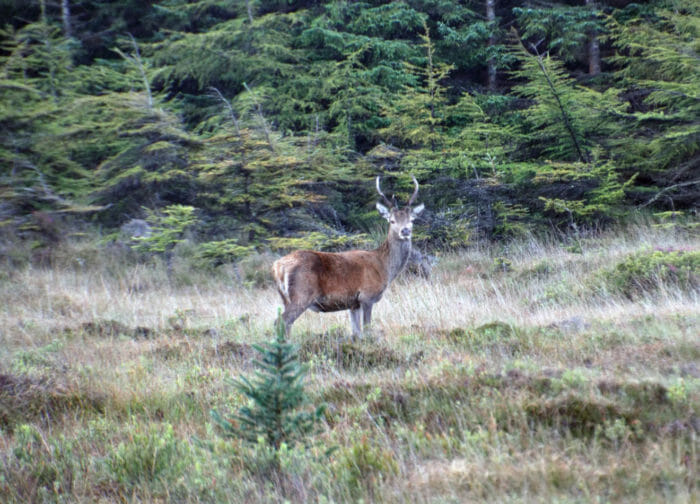UK Hunting Trophy Ban Update
Severing its relationship to the European commonwealth has its ups and downs for hunters.
As the introductory chapter of the Brexit-era comes to a close with the Queen’s assent and the Prime Minister’s signature, hunters and sportsmen in the United Kingdom can breathe a sigh of relief that stringent European Union regulations such as a registration of even deactivated handguns will no longer be in effect or are on their way toward being dismantled.
That’s not to say the political environment in the UK is entirely pro-sporting. Hunters may remain the UK’s most endangered species.
An End to Trophy Imports & Exports
As an alarming case-in-point to anyone who has ever darkened the door of a taxidermy shop: a “consultation” (basically, a public hearing process) on a possible ban on trophy imports and exports was initiated in November 2019. While the UK’s Department for Environment, Food & Rural Affairs (Defra) has extended the consultation by a month in order to gain more responses, it was only extended out of courtesy to those unable to comment due to the Christmas holidays and a hectic election season.
Options being floated by Defra include a total ban on trophy hunting, a ban on specific species, stricter rules on the transport of certain species, or merely maintaining the status quo.
Supporters of an outright ban have called the long-held practice of trophy hunting “repulsive” to 21st Century ethics, including MP Zac Goldsmith, Minister of State for Environment and International Development. Goldsmith echoed calls by Prime Minister Boris Johnson and his girlfriend Carrie Symonds, who called trophy hunting “cruel, sick, cowardly.” The rush to ban trophy hunting is a movement, Brexit or Remain.
Economic Impact
Conservationists point out the revenue generated from trophy hunting goes toward species protection efforts such as habitat preservation. Fieldsports in the UK (hunting, shooting, fishing, and a wide range of other activities) has been proven to generate an estimated £6.2 billion per year in government revenue according to a study from the European Federation for Hunting and Conservation. Nearly 1 million Britons enjoy shooting sports, which alone can rake in £1.6 billion annually. A ban on imported and exported trophies can have a significant impact on these domestic figures and drain government coffers designed to protect species.
With exports and imports, the economic effect on other nations must be considered. According to latest figures from Safari Club International, which compared several nations as a sample in 2015, trophy hunting tourism in eight sample African countries – Botswana, Ethiopia, Mozambique, Namibia, South Africa, Tanzania, Zambia, and Zimbabwe – brings in an average of 18,815 trophy hunter visits per year and $426 million to the nations, supporting 53,000 jobs. The Humane Society International contends that figure is likely closer to $132 million. There was no breakdown available as to how much of that activity stems from UK hunters.
Nonetheless, trophy hunting is a firm institution in the UK. As such, previous Environment Secretary, Michael Gove, urged there should be an alternative in place before even considering banning trophies.
“We’ve got to make sure that there is a clear alternative, that they know that their [international hunters] livelihoods and their lifestyle are going to be respected and not patronized …” he said via the BBC.
The British Association for Shooting and Conservation (BASC) put together a Q&A-style response to Defra’s inquiry. BASC contends that international agreements and existing laws are sufficient for the protection of species and habitats.
As expected, BASC advised the government to take no action. In its response, BASC charged that the wording in Defra’s questionnaire is biased: “focused on ostensible benefits from further restrictions but does not consider detriments, nor does it inform those who are responding to the consultation that there could be downsides to the restrictions.”
Call to Action
Overpopulation of various species, particularly deer, can result in detrimental consequences, including starvation and the spread of disease. Allowing for trophies to be taken out of the borders provides an incentive for hunters to visit the UK and contribute to the control efforts. Among the potential downsides to an outright or even partial ban are not only overpopulation and the spread of diseases, but the proliferation of parasites such as ticks and the aforementioned loss of tourism and hunting activity dollars.
As a reminder of the effect public policy can have on animal populations: The government of Scotland is currently engaged in a mass-culling of deer as a result of its efforts to stimulate forest growth, inviting hunters to bag as many deer as they can in ever-growing massive herds. The forestry plan involves severe restrictions on hunting in addition to regulations on visits to various natural habitats for the deer. A UK-wide ban on trophy hunting imports and exports, it stands to reason, would have similar consequences across the isles.
As to any partial bans, BASC deems them unnecessarily burdensome and redundant. “The existing regulations provided by CITES [the Convention on International Trade in Endangered Species of Wild Fauna and Flora] and the EU provide sufficient evidence of sustainable sourcing, so we see no need to change the current internationally agreed system.”
Any ban on trophy hunting would have the effect of “dictating to the governments of those [other] countries how best to manage their natural resources.”
A call to action from BASC may be found here: https://basc.org.uk/trophy-hunting-consultation-deadline-extended
The consultation overview and online survey may be found here: https://consult.defra.gov.uk/wildlife-management/trophy-hunting-consultation
Andy Hogue is a longtime veteran of legislative politics and journalism. He makes frequent appearances on television and radio shows in the Austin area, his writing has appeared in numerous national and international media outlets. He has served as speechwriter for two state officials, publicity director for several projects at The Alamo, and was constituent services director for one of the last conservative Austin City Councilmen. For fun he likes to unload 13 rounds from his Browning Hi-Power.


